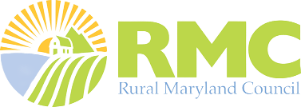On April 10, 2018, the Maryland Legislature adjourned. Among the session’s many accomplishments, the Legislature approved the Fiscal Year 2019 State Operating Budget that includes funds to support the Rural Maryland Prosperity Investment Fund (RMPIF), a key step forward in addressing disparities in the State’s rural areas. The Rural Maryland Council thanks Governor Hogan for budgeting funds to support RMPIF, the Maryland House of Delegates and Maryland Senate for their strong support, and the numerous individuals and organizations that voiced their concerns for increased rural investment.
“We want to express our sincere gratitude for these important and necessary funds that will be used to reinvigorate Maryland’s rural economies and communities” said RMC Board Chair, Josh Hastings, “What happens in rural Maryland reverberates through the entire state and these critically needed funds will improve the quality of life in rural communities through focusing on entrepreneurship, infrastructure, health care and more.”
The Rural Maryland Prosperity Investment Fund will receive $6,000,000 in funding for targeted investment to promote economic prosperity in Maryland’s traditionally disadvantaged and underserved rural communities. These funds will sustain efforts to promote rural regional cooperation, facilitate entrepreneurial activities, and support key community colleges and nonprofit providers. For Fiscal Year 2018, 27 grants were distributed to 27 organizations throughout the State. Information on grantees may be found at www.rural.maryland.gov.
The Rural Maryland Prosperity Investment Fund will support the Rural Maryland Council’s activities and the Maryland Agricultural Education and Rural Development Assistance Fund (MAERDAF), which provides capacity-building funds to rural nonprofit service providers. It will also support the states’ five regional councils, regional infrastructure projects, rural entrepreneurship development, rural community development, and rural health care organizations. Applications for the MAERDAF and RMPIF program are open for proposals until Friday, May 25, 2018, 11:59pm. The online application form and guidelines are available here: http://rural.maryland.gov/maerdaf_rmpif/.

